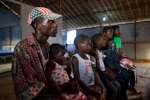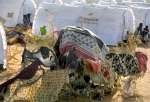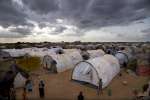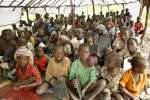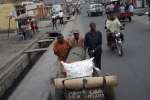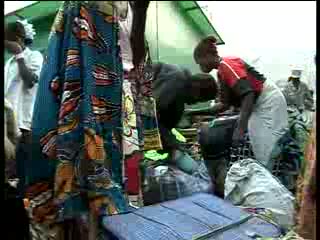Survey shows few Angolan refugees wish to repatriate to Angola
News Stories, 25 March 2009
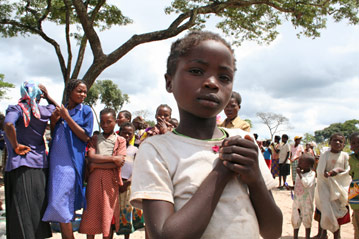
LUSAKA, Zambia, March 25 (UNHCR) – A survey by UNHCR and the government of Zambia found only 251 out of some 10,000 Angolan refugees in Mayukwayukwa Refugee Settlement were interested in repatriating this year despite an information campaign urging them to consider going home.
"I was at the Mayukwayukwa settlement three weeks ago to meet with Angolan refugees before the start of the intention survey to explain the new procedure so that refugees will be aware of the process and are informed when expressing their willingness to return home," said James Lynch, UNHCR's representative in Zambia.
"It seemed there was little interest among the Angolan refugees in Mayukwayukwa to repatriate. I explained to them that the assisted spontaneous return programme was time-bound, so they should seize this opportunity before it ends," the UNHCR official said.
The survey in the settlement in Kaoma District of Western Province was conducted on March 10-11 to determine the number of Angolan refugees willing to repatriate so that UNHCR could mobilize and allocate adequate resources. The repatriation exercise is due to begin on May 1.
The survey indicated only 251 individuals, 2.5 percent of a population of 10,000, wished to repatriate this year, another 284 in 2010 and 756 in 2011. This was despite an intensive information campaign by the government, the Angolan embassy and UNHCR.
UNHCR repatriated more than 74,000 Angolan refugees to Angola from Zambian refugee camps between 2003 and 2007. Organized large-scale returns ended then, but voluntary repatriation resumes this May with UNHCR offering transportation and a cash grant to help reintegrate in Angola. Zambia hosts more than 27,000 Angolans, which included those in the settlements of Meheba and Mayukwayukwa, some in urban areas and those that are self-settled.
Refugees cite many reasons for not wanting to repatriate from Mayukwayukwa, which was established in 1966. These include their many years in Zambia, being born in Zambia, being married to Zambians, the need for children to complete education and more opportunities for self-reliance in Zambia.
A delegation that included Zambian Home Affairs Deputy Permanent Secretary James Mfula, Angolan Ambassador to Zambia Pedro de Morais Neto and UNHCR's Lynch met this week with Angolan refugees in Mayukwayukwa, imparting a strong message about the need to consider returning home.
During the meeting, Mfula urged Angolans to strongly consider going home as the conditions that forced them into asylum no longer exist. "Angola is at peace now, so we encourage you to consider going back home to help in the reconstruction of your country. It's not good to be refugees in perpetuity."
The Angolan ambassador described positive political and economic changes in Angola and the need for refugees to consider returning home to join in the country's development. "Angola has embarked on an enormous countrywide reconstruction programme, which includes new schools, new roads, new hospitals and new homes; this is a long developmental process you have to take part in," he said.
By Kelvin Shimo in Lusaka, Zambia









